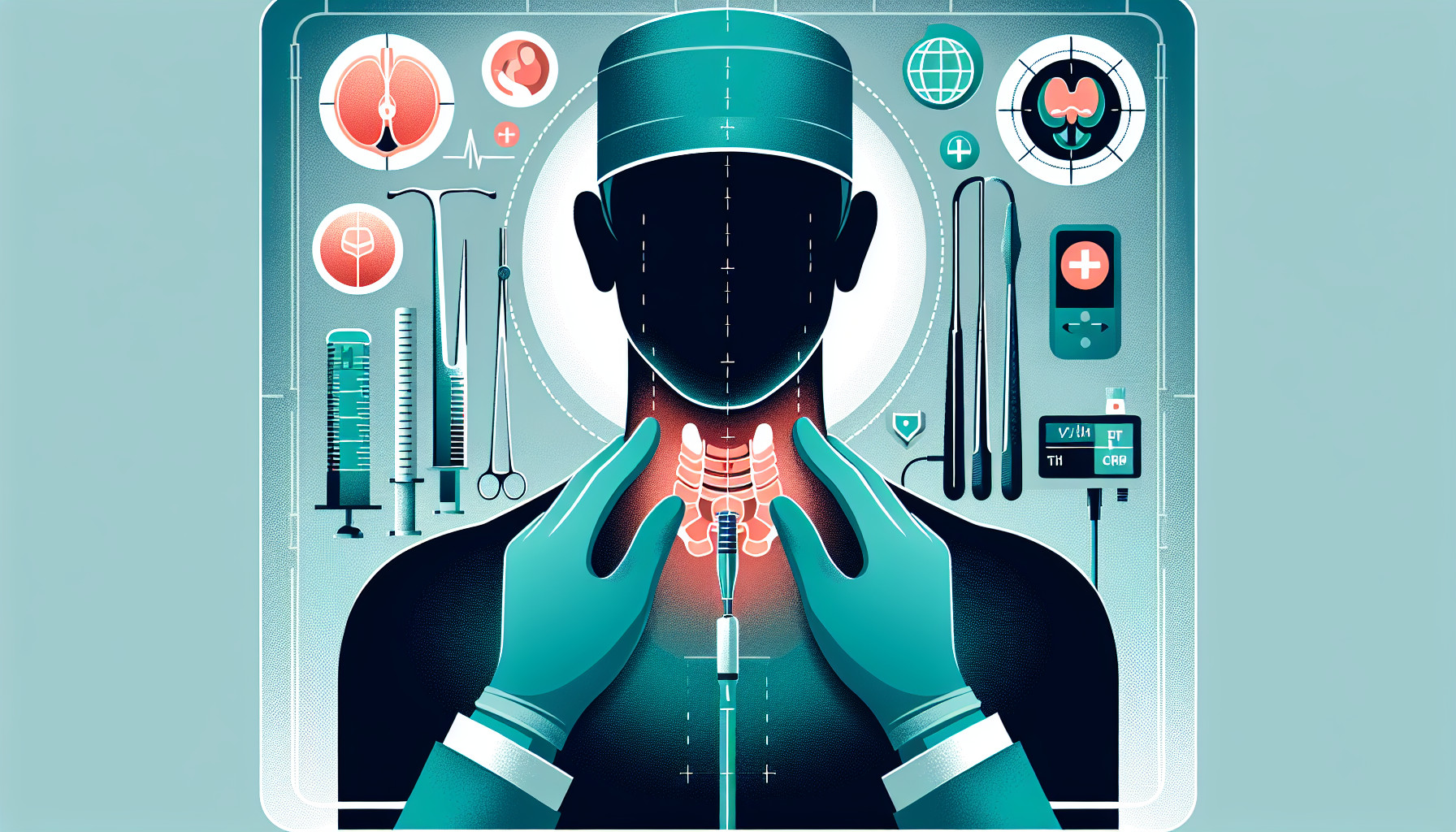Our Summary
This research paper investigates the reasons why patients from ethnic and racial minority groups with a certain type of hormonal disorder (primary hyperparathyroidism) might experience longer waiting times for a curative surgery called parathyroidectomy.
The study consisted of two parts: in the first part, researchers looked at the medical records of adults who underwent this surgery between 2015 and 2020, and took note of their personal and clinical information. They also calculated the ‘social vulnerability’ of the area where the patients lived using a special index, and the time intervals of specific clinical events.
The results showed that patients of Hispanic ethnicity, or Asian or Pacific Islander, Black, Native American, Other or Unknown race were more likely than non-Hispanic White patients to live in areas with high social vulnerability. These patients also waited longer between the time they were diagnosed with a high calcium level in the blood (an indicator of the disorder) and their first hormone level check, their referral for surgery, or the actual surgery.
In the second part of the study, the researchers interviewed endocrinologists (doctors who specialise in hormonal disorders) and identified various reasons for these delays, including socioeconomic factors (related to the social and economic conditions of the patients), as well as factors related to the patients themselves and other factors not related to the patients.
In conclusion, the study found that the delays in care are caused by a combination of socioeconomic and other factors.
FAQs
- What is the main focus of this research paper on parathyroidectomy?
- What were the findings of the study regarding delays in surgery for patients from ethnic and racial minority groups?
- What factors did the researchers identify as contributing to the longer waiting times for parathyroidectomy in patients of ethnic and racial minority groups?
Doctor’s Tip
One helpful tip a doctor might give to a patient about parathyroidectomy is to be proactive in seeking care and advocating for themselves. This can include scheduling regular follow-up appointments, keeping track of symptoms and test results, and asking questions about the treatment plan and timeline for surgery. Additionally, discussing any concerns about potential delays in care with their healthcare provider can help ensure timely treatment.
Suitable For
Patients who are from ethnic and racial minority groups with primary hyperparathyroidism may be recommended for parathyroidectomy. These patients may experience longer waiting times for surgery due to various factors such as social vulnerability, socioeconomic status, and other patient-related factors. It is important for healthcare providers to be aware of these disparities and work towards addressing them to ensure timely and equitable access to care for all patients.
Timeline
Before parathyroidectomy, a patient may experience symptoms such as fatigue, muscle weakness, bone pain, kidney stones, frequent urination, and memory problems. They may also undergo blood tests that show high levels of calcium and parathyroid hormone, as well as imaging tests to locate the affected parathyroid gland.
After the surgery, the patient can expect a recovery period of a few weeks, during which they may experience temporary hoarseness, difficulty swallowing, and numbness around the incision site. They will be closely monitored by their healthcare team for any complications, and will need to follow up with their doctor for regular blood tests to ensure that their calcium levels remain stable. In most cases, patients experience significant improvement in their symptoms and overall health after the surgery.
What to Ask Your Doctor
Some questions a patient should ask their doctor about parathyroidectomy include:
- What are the potential risks and complications associated with parathyroidectomy?
- What is the success rate of this surgery in treating primary hyperparathyroidism?
- How long is the recovery time following a parathyroidectomy?
- Will I need to take any medication or make any lifestyle changes after the surgery?
- Are there any alternative treatments to consider before opting for surgery?
- How many parathyroidectomies have you performed, and what is your success rate?
- Will I need to undergo any additional tests or evaluations before the surgery?
- How long can I expect to wait for the surgery after being diagnosed with primary hyperparathyroidism?
- How will my insurance coverage affect the cost of the surgery and follow-up care?
- What should I do if I experience any complications or side effects after the surgery?
Reference
Authors: Chen C, Li W, Sanghavi KK, Lu J, Wong G, Nijhar S, Snee I, McGowan T, Kim M, Dabbas MR, Li K, Felger EA, Carroll NM, Rosen JE, Lai V. Journal: Surgery. 2024 Oct;176(4):1090-1097. doi: 10.1016/j.surg.2024.06.026. Epub 2024 Jul 23. PMID: 39048331
